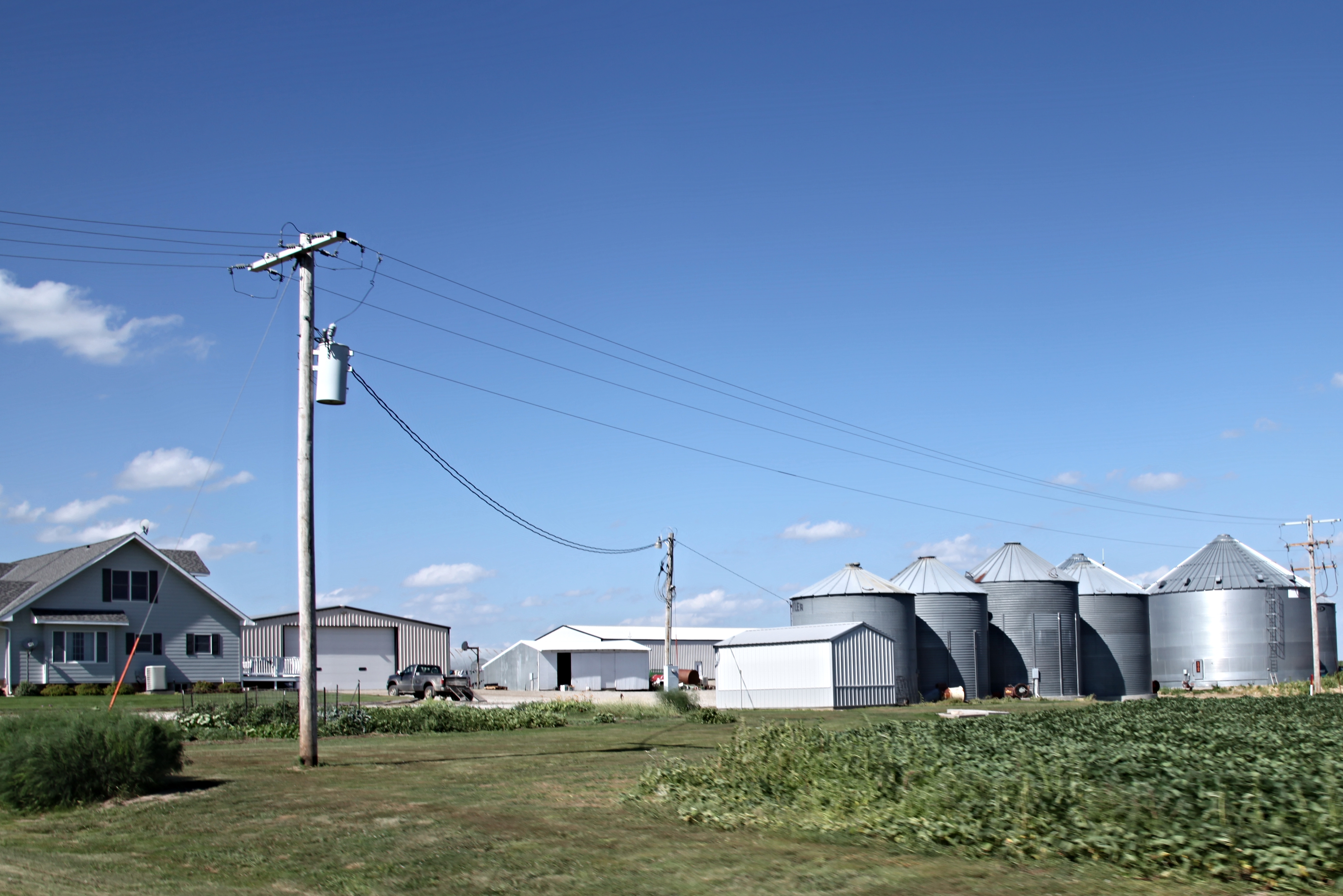
Use the following format to cite this article:
Overhead power-line safety. (2012) Ag Safety and Health Community of Practice. Retrieved from https://ag-safety.extension.org/overhead-power-line-safety/.
Overhead power lines on a farm or ranch can pose a significant electrocution hazard. Because power lines may have been installed without insulation or the insulation may have worn off due to exposure to weather, you should assume that all power lines are bare. Death from electrocution can occur when a person touches a power line while he or she is also in contact with the ground. When electricity enters something or someone, it takes the easiest and shortest path to electrical ground, the point at which the electricity is absorbed (as in the earth).
There are numerous pieces of equipment on a farm or ranch that, due to their height, can come in contact with overhead power lines:
- loader tractors
- portable grain augers and elevators
- dump trucks
- cultivators in transport mode
- irrigation pipes
- equipment with antennas
Specific Risks
- Dump trucks: When raised, the bed of a dump truck or trailer can contact overhead power lines. The person operating the dump truck should note the location of power lines before raising the bed and should not move the dump truck or trailer while the bed is in the raised position.
- Typically, if a raised bed contacts a power line, the operator will not be at risk of electrocution if he or she remains inside the vehicle because the truck’s tires provide insulation. If, however, a person standing on the ground touches the dump truck or trailer while it is in contact with an overhead line, he or she could be electrocuted.
- Hay: A loader tractor or telescopic loader may be used during hay handling. Because the booms of such vehicles may reach as high as overhead power lines, putting the vehicle at risk of contact, hay should not be stored under power lines.
- Grain bin: Electrocution incidents associated with grain bins occur when augers and/or elevator equipment is used in the vicinity of overhead power lines. The National Electrical Safety Code (NESC) requires that, where a portable auger or filling equipment is used, power lines be at least 18 ft. above the highest point on any grain bin constructed after 1992.
- Consult a licensed electrician or your local power company for guidance when planning changes to your grain bin operations.
- Click here for information from the U.S. Department of Labor concerning power line safety and equipment operation.
As a farmer or rancher, you can reduce your risk of electrocution by following these recommendations:
- Be aware of the location of overhead power lines on your farm, and avoid the risk of electrocution by choosing a route for your equipment that avoids potential contact.
- Never touch a power line.
- Contact your local power company if an incident occurs.
- Never use ladders around power lines.
- Remember that some equipment may have a higher profile during transport.
- Maintain a 10 ft. clearance space between the power lines and your equipment. Contact your power company to determine the height of power lines on your farm.
- If you are in a tractor and come in contact with power lines, remain in the tractor and have someone contact the power company to shut off the power.
- If you are in a tractor that contacts power lines and you must exit because of an emergency such as a fire, jump out and away from the tractor as far as possible. Never allow any part of your body to touch both the equipment and the ground at the same time. Plan to fall away from the tractor to avoid tripping back into contact with the tractor.
- Review safety measures with all individuals working on your farm, whether full-time, part-time, seasonal, or voluntary.
- Remember that even nonmetallic objects such as tree limbs, ropes, and straw can conduct electricity.
Use the following format to cite this article:
Overhead power-line safety. (2012) Ag Safety and Health Community of Practice. Retrieved from https://ag-safety.extension.org/overhead-power-line-safety/.
Citations
Maintain proper clearance around grain bins. (2010) Power Plus: A Monthly Publication of Midland Power Cooperative. Retrieved from https://www.recc.coop/grain-bin-clearances/.
Sources
Murphy, D. and Harshman, W. (2005) Farm dump truck and trailer safety. Penn State College of Agricultural Sciences Cooperative Extension. Retrieved from https://extension.psu.edu/farm-dump-truck-and-trailer-safety.
Schwab, C. and Miller, L. (2004) Electrocution hazards on the farm. Iowa State University Extension and Outreach. Retrieved from https://store.extension.iastate.edu/ItemDetail.aspx?ProductID=4616.
